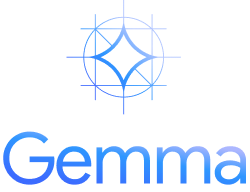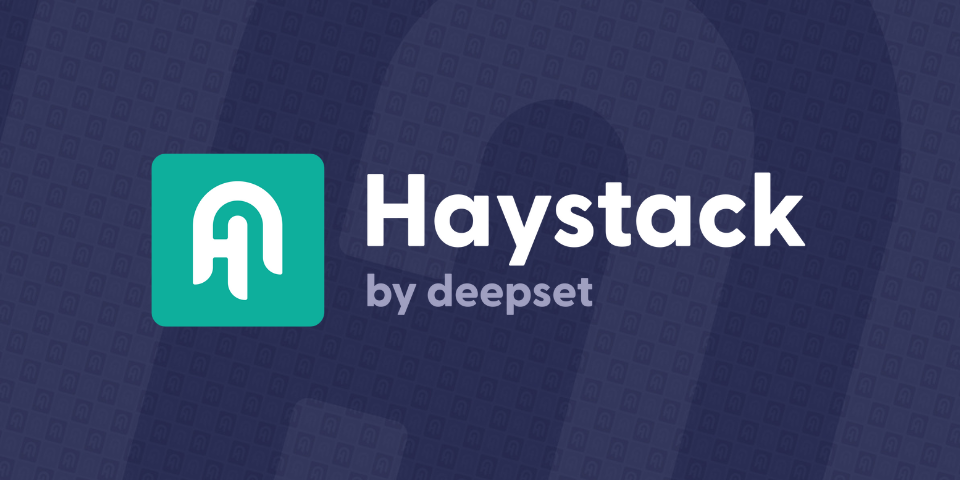Build with Gemma and Haystack
Last Updated: March 10, 2025


We will see what we can build with the new Google Gemma open models and the Haystack LLM framework.
Installation
! pip install haystack-ai "huggingface_hub>=0.22.0"
Authorization
- you need an Hugging Face account
- you need to accept Google conditions here: https://huggingface.co/google/gemma-7b-it and wait for the authorization
import getpass, os
os.environ["HF_API_TOKEN"] = getpass.getpass("Your Hugging Face token")
Your Hugging Face token··········
Chat with Gemma (travel assistant) 🛩
For simplicity, we call the model using the free Hugging Face Inference API with the HuggingFaceAPIChatGenerator.
(We might also load it in Colab using the HuggingFaceLocalChatGenerator in a quantized version).
from haystack.components.generators.chat import HuggingFaceAPIChatGenerator
from haystack.dataclasses import ChatMessage
generator = HuggingFaceAPIChatGenerator(
api_type="serverless_inference_api",
api_params={"model": "google/gemma-7b-it"},
generation_kwargs={"max_new_tokens": 350})
messages = []
while True:
msg = input("Enter your message or Q to exit\n🧑 ")
if msg=="Q":
break
messages.append(ChatMessage.from_user(msg))
response = generator.run(messages=messages)
assistant_resp = response['replies'][0]
print("🤖 "+assistant_resp.text)
messages.append(assistant_resp)
Enter your message or Q to exit
🧑 can you help me planning a trip?
🤖 **Sure, I'd be happy to help you with that. Please provide me with the following information:**
* **What you want to do:** What are your interests and what do you want to see and experience on your trip?
* **Your budget:** How much you are willing to spend on your trip.
* **Your preferred travel dates:** When you would like to travel.
* **Your preferred travel style:** Whether you prefer solo travel, group travel, or a guided tour.
* **Your preferred location:** Where you would like to go.
* **Any specific interests or activities you want to include:** For example, hiking, sightseeing, or exploring the local culture.
Once I have this information, I can help you plan a trip that is tailored to your specific interests and budget. I can also provide you with recommendations for accommodations, transportation, and activities.
Enter your message or Q to exit
🧑 I'm interested in Italy. what can I visit?
🤖 Sure, here are some ideas for places you can visit in Italy based on your interests:
**For history and culture:**
* Rome: The Eternal City, with its ancient ruins, museums, and vibrant culture.
* Florence: The "Cradle of the Renaissance," with its stunning architecture, art, and history.
* Pompeii: The ancient Roman city preserved by the eruption of Mount Vesuvius in 79 AD.
* Cinque Terre: A series of five picturesque villages along the Italian Riviera.
* Amalfi Coast: A scenic drive along the coast of the Amalfi Coast, known for its stunning views and charming towns.
**For nature and outdoor recreation:**
* Mount Vesuvius: An active volcano with a fascinating history.
* The Dolomites: A mountain range with breathtaking scenery and a variety of hiking trails.
* The Italian Alps: A mountain range with towering peaks and glaciers.
* Lake Como: A beautiful lake surrounded by mountains and villages.
* The Amalfi Coast: A scenic drive along the coast of the Amalfi Coast, known for its stunning views and charming towns.
**For food and wine:**
* Tuscany: A region known for its delicious food, wine, and olive oil.
* Piedmont: A region known for its truffles, chocolates, and red wine.
* Apulia: A region known for its olive oil, cheese, and seafood.
* Sicily: A region known for its unique cuisine and vibrant culture.
Enter your message or Q to exit
🧑 nice. can you provide me with a list of things I should take with me to Italy for the trip?
🤖 Sure, here are a few things you should pack for your trip to Italy:
* Comfortable walking shoes
* Light clothing
* Sunscreen
* Hat
* Sunglasses
* Camera
* Water bottle
* A small amount of cash
* Credit card
* A few basic Italian phrases
* A map of Italy
* A guidebook to Italy
Enter your message or Q to exit
🧑 Q
RAG with Gemma (about Rock music) 🎸
! pip install wikipedia
Load data from Wikipedia
favourite_bands="""Audioslave
Blink-182
Dire Straits
Evanescence
Green Day
Muse (band)
Nirvana (band)
Sum 41
The Cure
The Smiths""".split("\n")
from IPython.display import Image
from pprint import pprint
import rich
import random
import wikipedia
from haystack.dataclasses import Document
raw_docs=[]
for title in favourite_bands:
page = wikipedia.page(title=title, auto_suggest=False)
doc = Document(content=page.content, meta={"title": page.title, "url":page.url})
raw_docs.append(doc)
Indexing Pipeline
from haystack import Pipeline
from haystack.document_stores.in_memory import InMemoryDocumentStore
from haystack.components.preprocessors import DocumentCleaner, DocumentSplitter
from haystack.components.writers import DocumentWriter
from haystack.document_stores.types import DuplicatePolicy
document_store = InMemoryDocumentStore()
indexing = Pipeline()
indexing.add_component("cleaner", DocumentCleaner())
indexing.add_component("splitter", DocumentSplitter(split_by='sentence', split_length=2))
indexing.add_component("writer", DocumentWriter(document_store=document_store, policy=DuplicatePolicy.OVERWRITE))
indexing.connect("cleaner", "splitter")
indexing.connect("splitter", "writer")
<haystack.pipeline.Pipeline at 0x7f7a11777490>
indexing.run({"cleaner":{"documents":raw_docs}})
{'writer': {'documents_written': 1584}}
document_store.filter_documents()[0].meta
{'title': 'Audioslave',
'url': 'https://en.wikipedia.org/wiki/Audioslave',
'source_id': 'e3deff3d39ef107e8b0d69415ea61644b73175086cfbeee03d5f5d6946619fcf'}
RAG Pipeline
from haystack.components.builders import PromptBuilder
prompt_template = """
<start_of_turn>user
Using the information contained in the context, give a comprehensive answer to the question.
If the answer is contained in the context, also report the source URL.
If the answer cannot be deduced from the context, do not give an answer.
Context:
{% for doc in documents %}
{{ doc.content }} URL:{{ doc.meta['url'] }}
{% endfor %};
Question: {{query}}<end_of_turn>
<start_of_turn>model
"""
prompt_builder = PromptBuilder(template=prompt_template)
Here, we use the HuggingFaceAPIGenerator since it is not a chat setting and we don’t envision multi-turn conversations but just RAG.
from haystack.components.generators import HuggingFaceAPIGenerator
generator = HuggingFaceAPIGenerator(
api_type="serverless_inference_api",
api_params={"model": "google/gemma-7b-it"},
generation_kwargs={"max_new_tokens": 500})
from haystack.components.retrievers.in_memory import InMemoryBM25Retriever
rag = Pipeline()
rag.add_component("retriever", InMemoryBM25Retriever(document_store=document_store, top_k=5))
rag.add_component("prompt_builder", prompt_builder)
rag.add_component("llm", generator)
rag.connect("retriever.documents", "prompt_builder.documents")
rag.connect("prompt_builder.prompt", "llm.prompt")
<haystack.pipeline.Pipeline at 0x7f7a10ee5180>
Let’s ask some questions!
def get_generative_answer(query):
results = rag.run({
"retriever": {"query": query},
"prompt_builder": {"query": query}
}
)
answer = results["llm"]["replies"][0]
rich.print(answer)
get_generative_answer("Audioslave was formed by members of two iconic bands. Can you name the bands and discuss the sound of Audioslave in comparison?")
Ranking by BM25...: 0%| | 0/1565 [00:00<?, ? docs/s]
**Answer:** Sure, here is the answer to the question: Audioslave was formed by members of Soundgarden and Rage Against the Machine. The sound of Audioslave was a blend of the grunge sound of Soundgarden and the funk metal sound of Rage Against the Machine. **Source URL:** * [Audioslave Wikipedia page](/wiki/Audioslave)
nice_questions_to_try="""What was the original name of Sum 41?
What was the title of Nirvana's breakthrough album released in 1991?
Green Day's "American Idiot" is a rock opera. What's the story it tells?
Audioslave was formed by members of two iconic bands. Can you name the bands and discuss the sound of Audioslave in comparison?
Evanescence's "Bring Me to Life" features a male vocalist. Who is he, and how does his voice complement Amy Lee's in the song?
What is Sum 41's debut studio album called?
Who was the lead singer of Audioslave?
When was Nirvana's first studio album, "Bleach," released?
Were the Smiths an influential band?
What is the name of Evanescence's debut album?
Which band was Morrissey the lead singer of before he formed The Smiths?
Dire Straits' hit song "Money for Nothing" features a guest vocal by a famous artist. Who is this artist?
Who played the song "Like a stone"?""".split('\n')
q=random.choice(nice_questions_to_try)
print(q)
get_generative_answer(q)
What was the original name of Sum 41?
Ranking by BM25...: 0%| | 0/1565 [00:00<?, ? docs/s]
**Answer:** Supernova **Source URL:** en.wikipedia.org/wiki/Sum_41 The text states that the band originally changed their name to Supernova, so the answer to the question is Supernova.
This is a simple demo. We can improve the RAG Pipeline using better retrieval techniques: Embedding Retrieval, Hybrid Retrieval…
(Notebook by Stefano Fiorucci)
